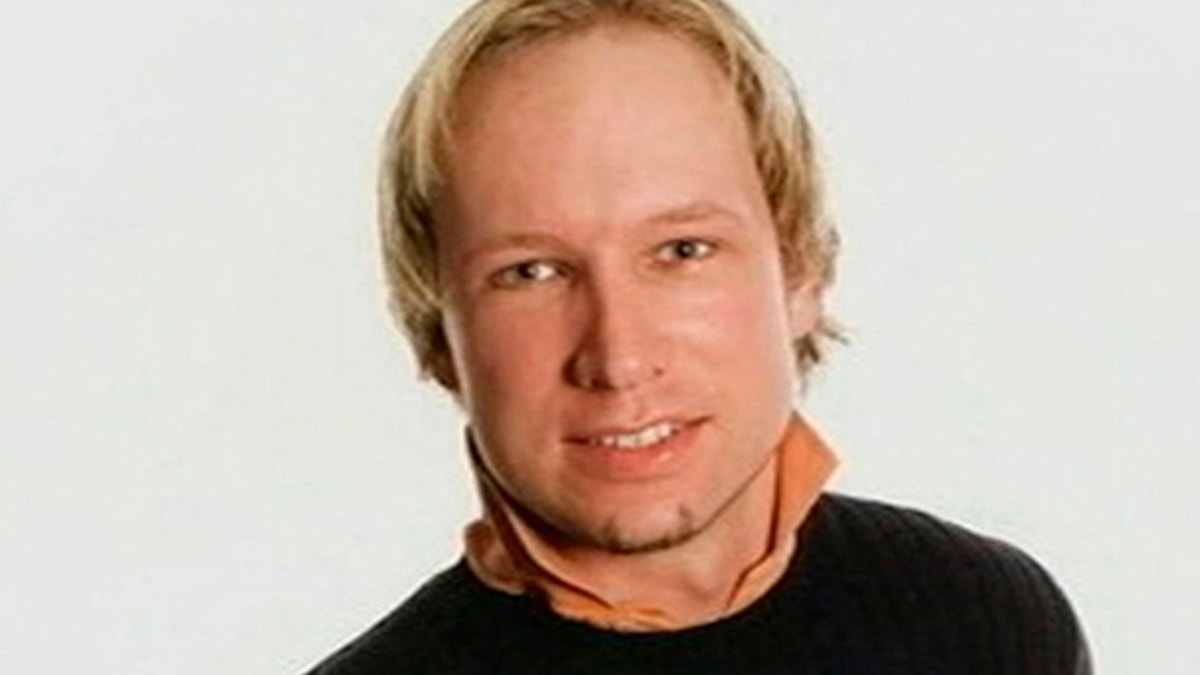
FILE- This photograph of Anders Behring Breivik, who confessed to killing at least 77 people, is broadcast by Norwegian television.
OSLO, Norway – The right-wing extremist who confessed to killing 77 people in a bomb and shooting rampage in Norway is not criminally insane, a psychiatric assessment found Tuesday, contradicting an earlier examination.
The new conclusion comes just six days before Anders Behring Breivik is scheduled to go on trial on terror charges for the massacre on July 22, and could prompt prosecutors to seek a prison sentence instead of compulsory commitment to psychiatric care.
It conflicts with an earlier assessment, which found Breivik psychotic both during and after the attacks, and diagnosed him as a paranoid schizophrenic.
The court will take both psychiatric assessments into account during the trial, which starts Monday and is scheduled to last 10 weeks.
The new assessment was made by psychiatrists Terje Toerrissen and Agnar Aspaas on a request from the court after widespread criticism against the first diagnosis.
"Our conclusion is that he is not psychotic at the time of the actions of terrorism and he is not psychotic now," Toerrissen told The Associated Press.
The full report was confidential and the psychiatrists declined to give details on why they reached a different conclusion than the first team of experts that examined Breivik. They said they will present their reasoning when they testify in the trial.
Breivik has confessed to setting off the bomb in downtown Oslo, killing eight, and opening fire at a youth camp outside the Norwegian capital, killing 69. But he denies criminal guilt, saying the attacks were necessary in what he calls a civil war against Islam in Europe.
When prosecutors indicted Breivik on terror and murder charges last month, they cited the first assessment and said they would seek compulsory psychiatric care instead of imprisonment unless new information about his mental health emerged.
Breivik claims he's not insane and wrote a letter to Norwegian media saying the first review was based on lies. He was "satisfied" when he learned of the conclusions of the second examination Tuesday, his lawyer Geir Lippestad said.
Lippestad said the new report means Breivik's testimony will be crucial "when the judges decide whether he is insane or not."
Asked whether Breivik will defend his actions in court, Lippestad said: "He won't only defend it, he will also regret that he didn't go further."
After the attacks, Breivik told investigators that he was part of a right-wing militant group plotting to overthrow European governments in a "patriotic" revolution that would lead to the deportation of Muslim immigrants from Europe.
Police, however, found no trace of his so-called Knights Templar organization, and say he planned and carried out the attacks on his own.
